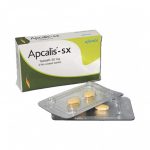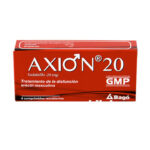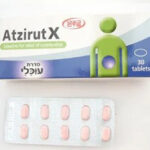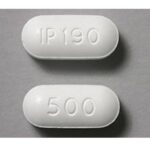Levifil: Uses, Dosage, Side Effects, Interactions, Warnings
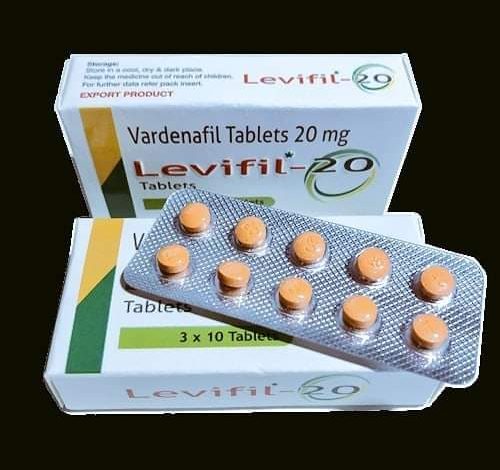
Levifil is a brand of Vardenafil a medication used to treat erectile dysfunction (impotence; inability to get or keep an erection) in men. Levifil is in a class of medications called phosphodiesterase (PDE) inhibitors. It works by increasing blood flow to the penis during sexual stimulation. This increased blood flow can cause an erection. Levifil does not cure erectile dysfunction or increase sexual desire. Levifil does not prevent pregnancy or the spread of sexually transmitted diseases such as human immunodeficiency virus (HIV).
Warnings
Some medicines can cause unwanted or dangerous effects when used with Levifil. Tell your doctor about all your medicines, especially riociguat (Adempas).
Do not take Levifil if you are also using a nitrate drug for chest pain or heart problems, including nitroglycerin, isosorbide dinitrate, isosorbide mononitrate, and some recreational drugs such as “poppers”. Taking Levifil with a nitrate medicine can cause a sudden and serious decrease in blood pressure.
Contact your doctor or seek emergency medical attention if your erection is painful or lasts longer than 4 hours. A prolonged erection (priapism) can damage the penis.
Stop using Levifil and get emergency medical help if you have sudden vision loss.
Before taking this medicine
You should not use Levifil if you are allergic to it, or if you take other medicines to treat pulmonary arterial hypertension, such as riociguat (Adempas).
Levifil is not approved for men younger than 18 years old.
Do not take Levifil if you are also using a nitrate drug for chest pain or heart problems. This includes nitroglycerin, isosorbide dinitrate, and isosorbide mononitrate. Nitrates are also found in some recreational drugs such as amyl nitrate or nitrite (“poppers”). Taking Levifil with a nitrate medicine can cause a sudden and serious decrease in blood pressure.
Tell your doctor if you have ever had:
• heart disease, heart rhythm problems;
• a heart attack, stroke, or congestive heart failure;
• long QT syndrome (in you or a family member);
• high or low blood pressure;
• seizures;
• liver disease, kidney disease (or if you are on dialysis);
• a blood cell disorder such as sickle cell anemia, multiple myeloma, or leukemia;
• a bleeding disorder such as hemophilia;
• a stomach ulcer;
• hearing or vision problems, vision loss;
• an eye disorder such as retinitis pigmentosa (an inherited condition of the eye);
• a physical deformity of the penis (such as Peyronie’s disease); or
• if you have been told you should not have sexual intercourse for health reasons.
Levifil can decrease blood flow to the optic nerve of the eye, causing sudden vision loss. This has occurred in a small number of people, most of whom also had heart disease, diabetes, high blood pressure, high cholesterol, or certain pre-existing eye problems, and in those who smoked or were over 50 years old. It is not clear whether Levifil is the actual cause of vision loss.
Staxyn may contain phenylalanine. Talk to your doctor before using this form of Levifil if you have phenylketonuria (PKU).
Levifil is not for use in women, and the effects of Levifil during pregnancy or in breastfeeding women are unknown.
Levifil Dosage
Vardenafil comes in tablets that range from 2.5 to 20 milligrams (mg). Your doctor can help you figure out what dose is right for you.
The recommended starting dose of Levifil for most people is 10 mg taken about an hour before sexual activity. The dose can be increased to a maximum of 20 mg or decreased based on its effectiveness and the presence of side effects.
You shouldn’t take Levifil more than once per day. If you’re over age 65 years, your doctor may recommend a starting dose of 5 mg.
What are the side effects of Levifil?
Levifil may cause side effects. Tell your doctor if any of these symptoms are severe or do not go away:
• headache
• upset stomach
• heartburn
• flushing
• stuffy or runny nose
• flu-like symptoms
Some side effects can be serious. If you experience any of the following symptoms, call your doctor immediately:
- erection that lasts longer than 4 hours
- sudden severe loss of vision (see below for more information)
- blurred vision
- changes in color vision (seeing blue tinge on objects, difficulty telling the difference between blue and green, or difficulty seeing at night)
- dizziness
- sudden decrease or loss of hearing
- ringing in ears
- swelling of the face, throat, tongue, lips, eyes, hands, feet, ankles, or lower legs
- hoarseness
- difficulty breathing or swallowing
- fainting
- hives
- rash
Levifil may cause other side effects. Call your doctor if you have any unusual problems while taking this medication.
Some patients experienced a sudden loss of some or all of their vision after they took Levifil or other medications that are similar to Levifil. The vision loss was permanent in some cases. It is not known if the vision loss was caused by the medication. If you experience a sudden loss of vision while you are taking Levifil, call your doctor immediately. Do not take any more doses of Levifil or similar medications such as sildenafil (Viagra) or tadalafil (Cialis) until you talk to your doctor.
Some patients experienced a sudden decrease or loss of hearing after they took Levifil or other medications that are similar to Levifil. The hearing loss usually involved only one ear and may not get better. It is not known if the hearing loss was caused by the medication. If you experience a sudden loss of hearing, sometimes with ringing in the ears or dizziness, while you are taking Levifil, call your doctor immediately. Do not take any more doses of Levifil or similar medications such as sildenafil (Viagra) or tadalafil (Cialis) until you talk to your doctor.
If you experience a serious side effect, you or your doctor may send a report to the Food and Drug Administration’s (FDA) MedWatch Adverse Event Reporting program online (http://www.fda.gov/Safety/MedWatch) or by phone (1-800-332-1088).

